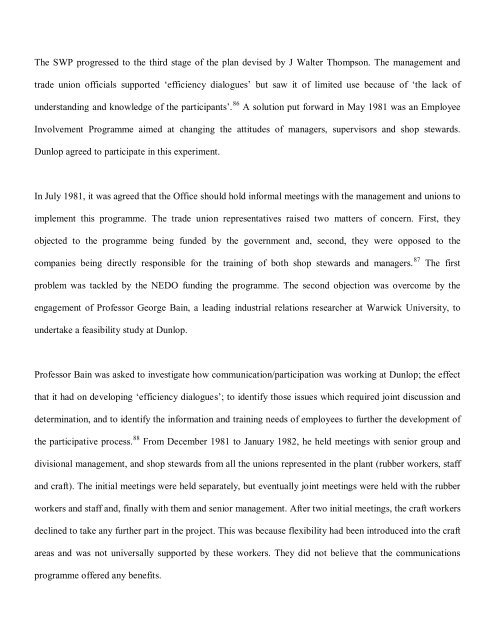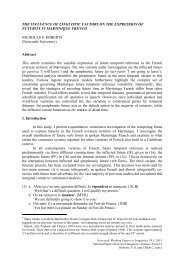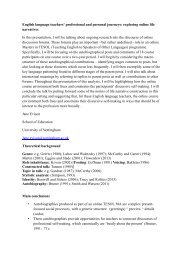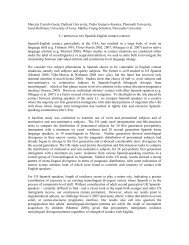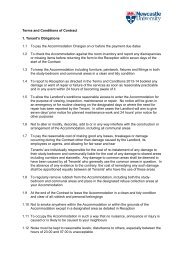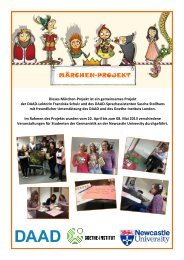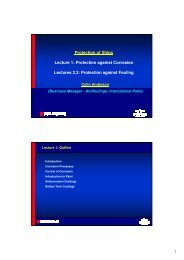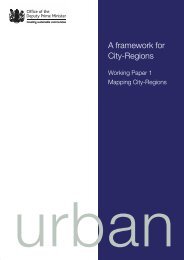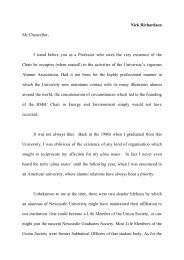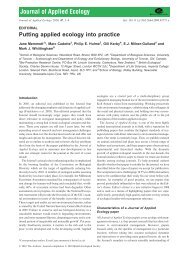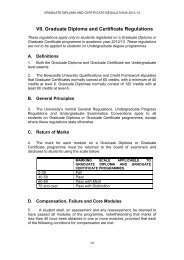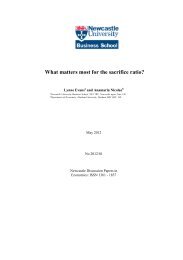The decline of the British tyre industry - Newcastle University
The decline of the British tyre industry - Newcastle University
The decline of the British tyre industry - Newcastle University
You also want an ePaper? Increase the reach of your titles
YUMPU automatically turns print PDFs into web optimized ePapers that Google loves.
<strong>The</strong> SWP progressed to <strong>the</strong> third stage <strong>of</strong> <strong>the</strong> plan devised by J Walter Thompson. <strong>The</strong> management and<br />
trade union <strong>of</strong>ficials supported ‘efficiency dialogues’ but saw it <strong>of</strong> limited use because <strong>of</strong> ‘<strong>the</strong> lack <strong>of</strong><br />
understanding and knowledge <strong>of</strong> <strong>the</strong> participants’. 86<br />
A solution put forward in May 1981 was an Employee<br />
Involvement Programme aimed at changing <strong>the</strong> attitudes <strong>of</strong> managers, supervisors and shop stewards.<br />
Dunlop agreed to participate in this experiment.<br />
In July 1981, it was agreed that <strong>the</strong> Office should hold informal meetings with <strong>the</strong> management and unions to<br />
implement this programme. <strong>The</strong> trade union representatives raised two matters <strong>of</strong> concern. First, <strong>the</strong>y<br />
objected to <strong>the</strong> programme being funded by <strong>the</strong> government and, second, <strong>the</strong>y were opposed to <strong>the</strong><br />
companies being directly responsible for <strong>the</strong> training <strong>of</strong> both shop stewards and managers. 87<br />
<strong>The</strong> first<br />
problem was tackled by <strong>the</strong> NEDO funding <strong>the</strong> programme. <strong>The</strong> second objection was overcome by <strong>the</strong><br />
engagement <strong>of</strong> Pr<strong>of</strong>essor George Bain, a leading industrial relations researcher at Warwick <strong>University</strong>, to<br />
undertake a feasibility study at Dunlop.<br />
Pr<strong>of</strong>essor Bain was asked to investigate how communication/participation was working at Dunlop; <strong>the</strong> effect<br />
that it had on developing ‘efficiency dialogues’; to identify those issues which required joint discussion and<br />
determination, and to identify <strong>the</strong> information and training needs <strong>of</strong> employees to fur<strong>the</strong>r <strong>the</strong> development <strong>of</strong><br />
<strong>the</strong> participative process. 88<br />
From December 1981 to January 1982, he held meetings with senior group and<br />
divisional management, and shop stewards from all <strong>the</strong> unions represented in <strong>the</strong> plant (rubber workers, staff<br />
and craft). <strong>The</strong> initial meetings were held separately, but eventually joint meetings were held with <strong>the</strong> rubber<br />
workers and staff and, finally with <strong>the</strong>m and senior management. After two initial meetings, <strong>the</strong> craft workers<br />
<strong>decline</strong>d to take any fur<strong>the</strong>r part in <strong>the</strong> project. This was because flexibility had been introduced into <strong>the</strong> craft<br />
areas and was not universally supported by <strong>the</strong>se workers. <strong>The</strong>y did not believe that <strong>the</strong> communications<br />
programme <strong>of</strong>fered any benefits.


